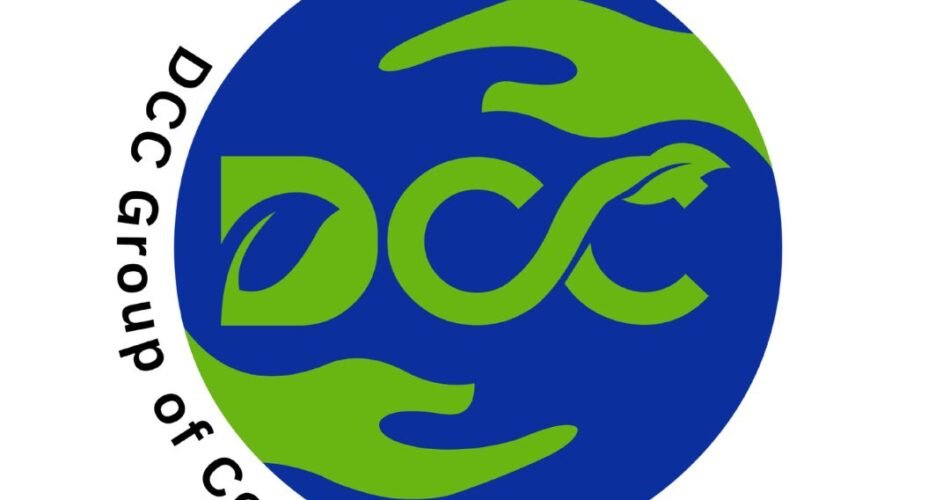In the race toward sustainable urban development and zero-waste goals, India is witnessing a transformative shift in how it approaches municipal solid waste. A critical breakthrough in this journey is the growing focus on Segregated Combustible Fractions (SCF) — waste streams that are high in calorific value and ideal for energy recovery. These fractions play a pivotal role in producing Refuse Derived Fuel (RDF), a clean energy source that is reshaping the recycling and waste management ecosystem. Leading this charge is DCC Group, an environmental engineering company that is revolutionizing RDF in waste management through advanced technologies and efficient pre-processing systems.
Understanding Segregated Combustible Fractions (SCF)
Segregated Combustible Fractions refer to the non-recyclable, high-calorific components of municipal solid waste (MSW), such as contaminated plastics, multilayer packaging, textile waste, paper, and rubber. These are materials unsuitable for traditional recycling but still contain significant energy potential. When separated efficiently from inert and recyclable fractions, SCFs become feedstock for RDF recycling — offering a sustainable alternative to fossil fuels in energy-intensive industries.
The rising relevance of SCF is tied to global movements toward a circular economy, where even the most challenging waste components are turned into resources. DCC Group’s strategic focus on extracting SCFs through advanced segregation and pre-processing RDF technology is key to this transformation.
RDF in Waste Management: Closing the Loop
The role of RDF in waste management has expanded significantly in recent years. RDF refers to fuel prepared from non-recyclable waste materials with high calorific value. It is used as a partial replacement for fossil fuels in cement kilns, power plants, and industrial boilers. Unlike unprocessed waste, RDF is homogeneous, lightweight, and easy to transport and store.
Municipalities and urban bodies across India are embracing RDF not just as a means to reduce landfill pressure, but also as a tool to contribute to India’s renewable energy targets. DCC Group plays a crucial role in this sector by offering fully integrated RDF manufacturing systems — from waste segregation machines to RDF supply logistics.
The RDF Manufacturing Process
Creating high-quality RDF requires a multi-step, controlled process. DCC Group’s RDF production workflow is streamlined, efficient, and adaptable to Indian waste conditions. Here’s a breakdown of the RDF manufacturing process:
-
Primary Segregation
Waste is passed through mechanized screening systems to separate organic matter, recyclables, inerts, and SCFs. Trommel screens, ballistic separators, and air classifiers help in precise fractioning. -
Drying
Since moisture hampers calorific value, SCFs are subjected to natural drying (windrows) or mechanical drying systems depending on the plant design. -
Shredding
The dried combustible fractions are then shredded into uniform sizes to enhance combustion efficiency and ease of transport. -
Quality Control
Calorific value, moisture, chlorine content, and ash percentage are tested in labs to ensure RDF meets industry requirements. -
Baling or Pelletizing
The processed RDF is finally compressed into bales or pellets for easier handling, storage, and transportation.
DCC Group’s end-to-end setup ensures RDF quality remains consistent — making it more marketable and acceptable to a broader range of industrial consumers.
Pre-Processing RDF: A Game-Changer in Efficiency
A critical differentiator in high-quality RDF production is pre-processing RDF. This involves advanced steps taken before shredding, such as screening, air classification, and magnetic separation. These ensure the removal of inerts, metals, and moisture-laden organics — which can otherwise damage shredders and reduce fuel quality.
DCC Group integrates state-of-the-art screening machines, magnetic separators, and wind sifters that reduce equipment downtime and increase RDF output. These systems are custom-designed based on the local waste composition, ensuring maximum recovery of Segregated Combustible Fractions while minimizing residue.
RDF Supply: Bridging the Industry-Waste Gap
As the demand for cleaner fuels rises, the need for consistent and reliable RDF supply becomes paramount. DCC Group not only enables RDF production but also builds market linkages with cement industries, waste-to-energy plants, and other thermal plants.
By establishing strategic partnerships, DCC Group acts as a bridge between waste processors and energy consumers. It also assists in complying with Pollution Control Board (PCB) guidelines and managing logistics, allowing municipalities to focus on efficient waste collection and segregation while DCC ensures proper fuel utilization.
Benefits of SCF and RDF Integration
The integration of Segregated Combustible Fractions into the recycling stream via RDF has broad environmental and economic benefits:
-
Reduced Landfill Dependency
SCF extraction diverts a large portion of waste away from landfill, extending site lifespans and preventing leachate contamination. -
Clean Energy Production
RDF offers a lower-emission alternative to coal and other fossil fuels — aiding India’s push for decarbonization. -
Revenue Streams for ULBs
Municipal bodies can generate revenue by selling RDF or securing tipping fees from RDF-consuming industries. -
Job Creation
From plant operators to logistics teams, RDF manufacturing creates employment at multiple levels. -
Support for EPR and ESG Goals
RDF production supports Extended Producer Responsibility (EPR) and helps industries meet sustainability targets.
The DCC Group Advantage
As a pioneer in waste segregation and recycling solutions, DCC Group offers:
-
Custom-designed RDF plants tailored to local waste profiles
-
Advanced SCF separation and drying systems
-
High-capacity shredders for RDF-grade fuel
-
End-to-end project management from concept to commissioning
-
Market linkage support with industries and RDF consumers
With an unwavering commitment to innovation and sustainability, DCC Group is setting the benchmark in green energy solutions for Indian cities.
Conclusion
The future of waste management lies not just in disposal but in transformation — converting refuse into resources. Segregated Combustible Fractions, once considered the bane of recyclers, are now the raw material for clean, alternative fuels through the power of RDF.
Through cutting-edge technology, thoughtful design, and strong industry partnerships, DCC Group is leading India’s green revolution — redefining how we think about waste, recycling, and renewable energy.
